Philippines' Only Endemic Turtle Is On The Brink But Conservationists Are Determined To Bring It Back
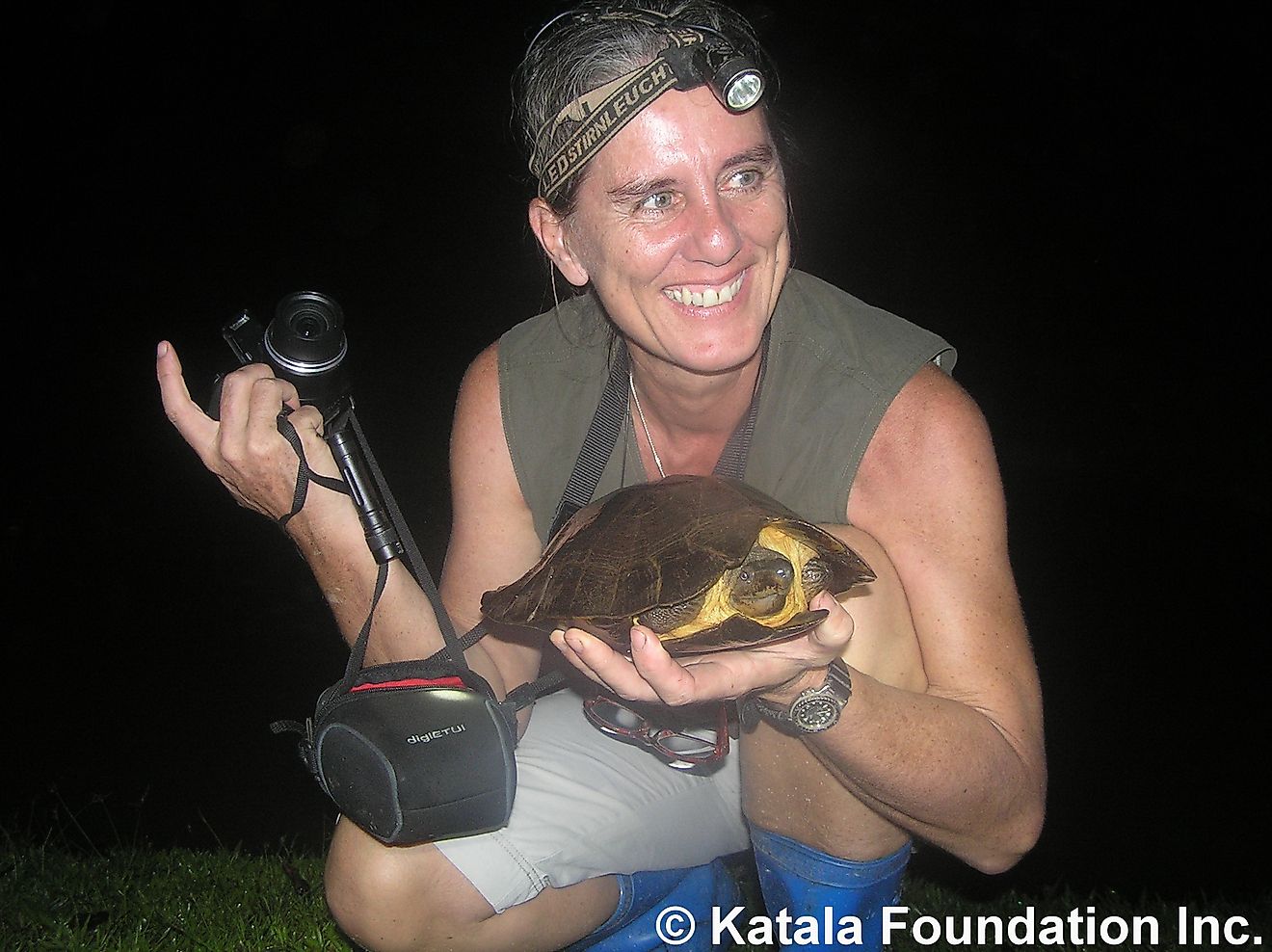
No matter where they live - on land, in the sea, or in freshwater bodies, turtles are falling prey to human-induced environmental degradation. For turtle species with a highly restricted distribution like the Philippine forest turtle (Siebenrockiella leytensis), the threat is even greater. Endemic to the province of Palawan in the Philippines, this turtle species (also called the Palawan forest turtle), is critically endangered. Only five municipalities in the northern part of Palawan Island and the Island of Dumaran host populations of this turtle. In unprotected areas of its habitat, populations are steadily declining.
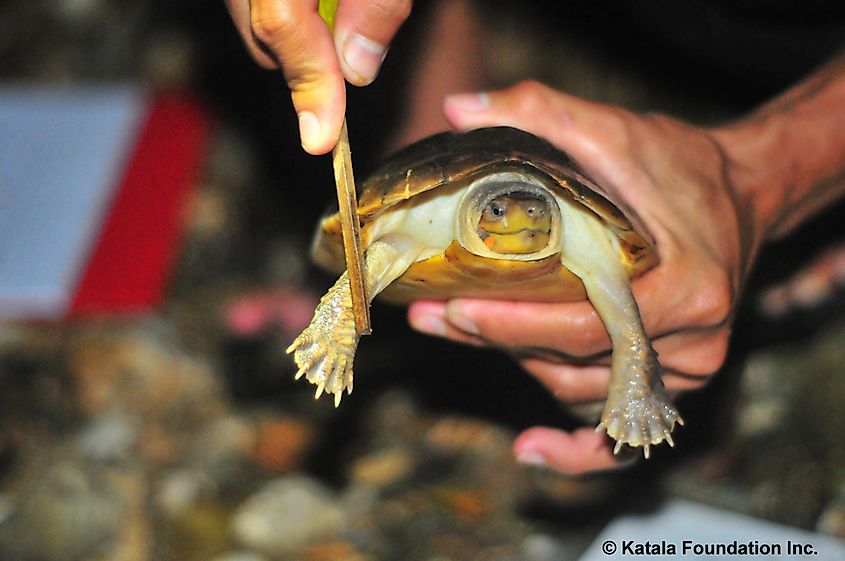
A Palawan forest turtle. All turtles that KFI ever caught or touched are individually marked by notching the marginal scutes of the shell.
"Overexploitation to feed the demands of the domestic and international pet markets, and poaching for food and Chinese traditional medicine preparation are among the biggest threats to the Palawan forest turtle," mentioned Dr. Sabine Schoppe, Director of the Palawan Freshwater Turtle and Palawan Pangolin Conservation Programs at Katala Foundation Inc (KFI), Philippines.
"Being a lowland species living in small forested streams or wetlands, it is also vulnerable to habitat loss. More and more of its habitat is being converted to agricultural land," she said.
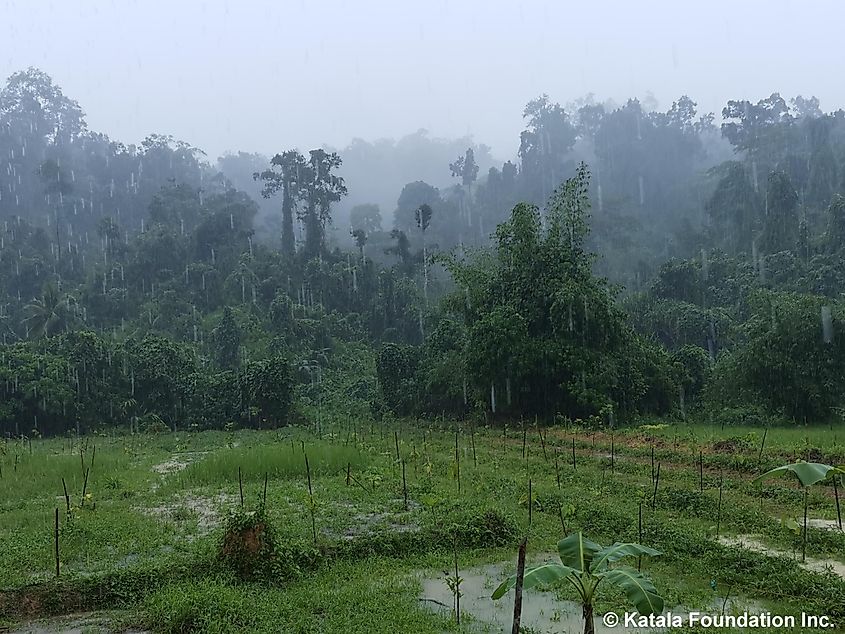
Wetlands in lowland forest ecosystems are the habitat of the Palawan Forest Turtle. Intact habitats are rare as conversion into agricultural land is rampant.
Thus, considering the dire need to save the Palawan forest turtle from extinction and its vital role in freshwater ecosystems, the Katala Foundation Inc. adopted the Palawan forest turtle as a flagship species. In 2006, the organization also launched the Palawan Freshwater Turtle Conservation Program (PFTCP) with a plan for long-term conservation of the species. The plan was formalized in a Memorandum of Agreement with the Palawan Council for Sustainable Development (PCSD).
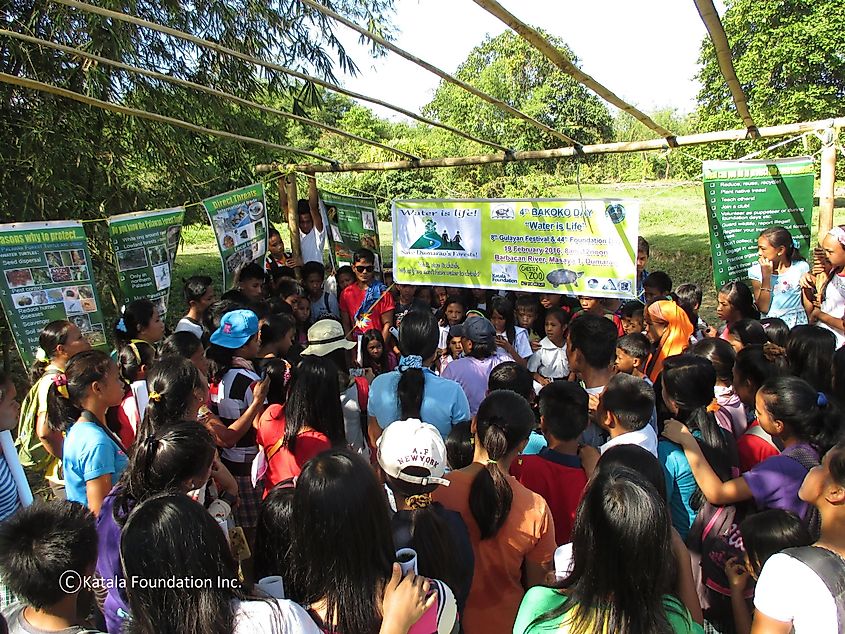
Annual World Turtle Day celebration with community member in one of the project sites of KFI
"Our goal is to downgrade the conservation status of the Palawan Forest Turtle from Critically Endangered to Endangered. In late 2006, we started our activities under the PFTCP. Our work involves researching the status of natural populations, threats, and habitat and building up awareness about the status, needs, and functions of the species. In-situ conservation measures like habitat protection through the establishment of local protected areas are also implemented. We also focus on training locals as forest rangers to involve local communities in conservation. The establishment of wardening schemes in protected areas and the provision of alternate livelihood to poachers are our other important activities. In addition, we are also working on the ex-situ conservation of the species. It includes the rescue and rehabilitation of the Palawan forest turtles and their captive breeding. We are the only facility that has successfully bred Palawan forest turtles in captivity. Offsprings born in captivity will be released into protected areas," informed Dr. Schoppe.
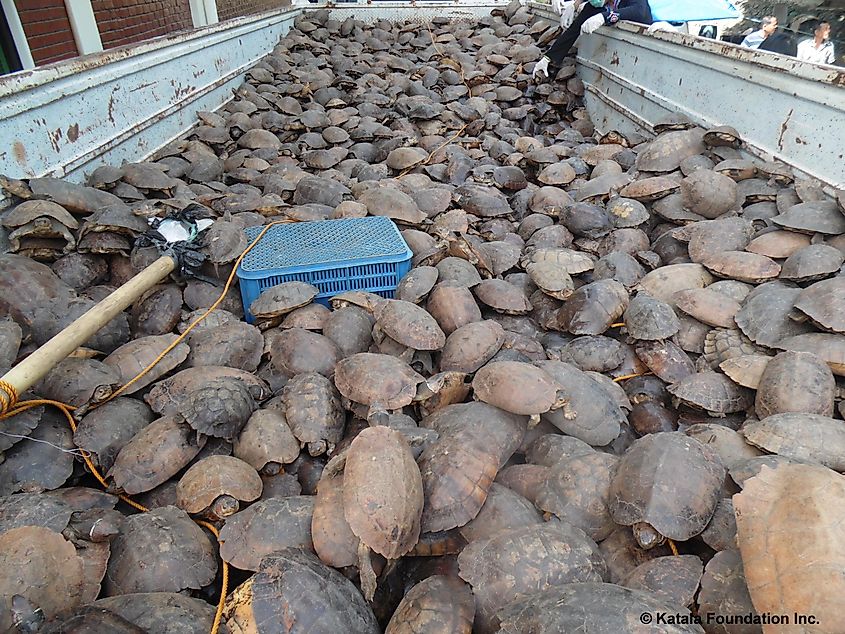
In June 2015 almost 4000 Palawan Forest Turtle were confiscated by the Palawan Council for Sustainable Development. KFI headed the rescue, rehabilitation and release of the turtles. Released turtles are still monitored.
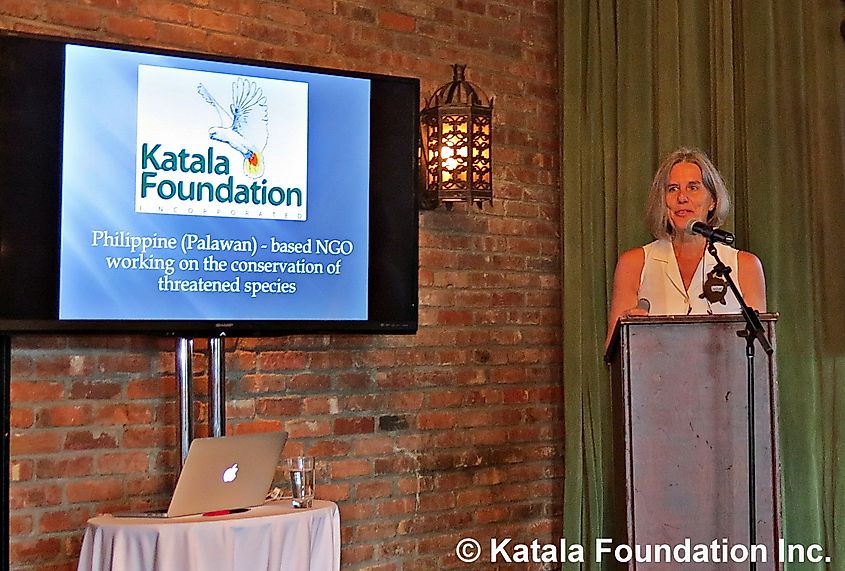
Sabine received the 2015 Annual Andrew Sabin Family Foundation Prize for Excellence in Chelonian Conservation for managing the Palawan Forest Turtle crisis in June 2015 when almost 4000 turtles got confiscated.
Saving a species from the brink is, however, riddled with a multitude of challenges as explained by Dr. Schoppe: "The continuous demand fuelling the illegal wildlife trade of the Palawan forest turtle, and the high vulnerability of its habitats to human disturbances create major hurdles in conservation. In addition, there is a dearth in the number of rangers and law enforcers protecting the species. The number of organized illegal wildlife crime practitioners, however, is on the rise," she said.
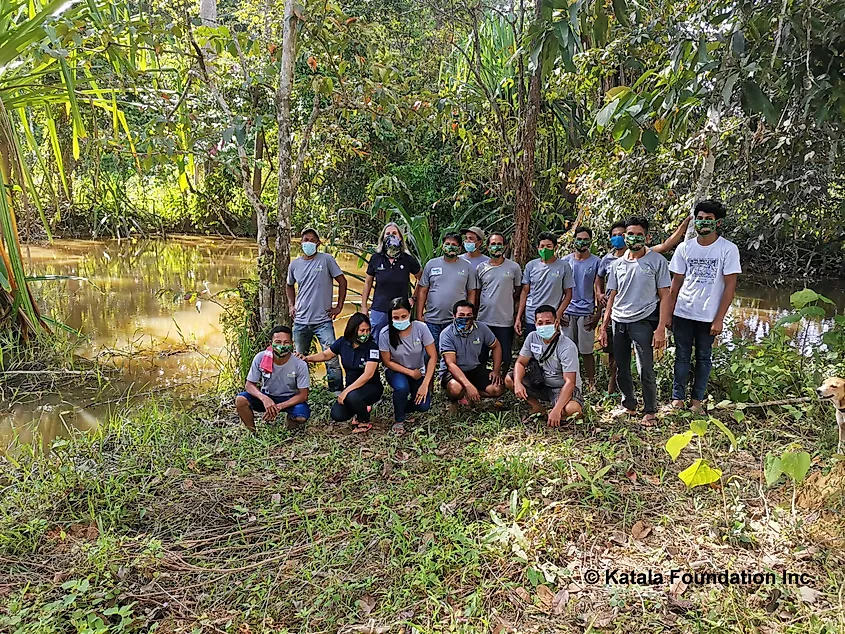
Deputized wildlife enforcement officers patrol the protected areas on a daily basis. Here wardens, field officers and management post for a group picture after a meeting.
Fortunately, however, the Palawan forest turtles are getting the needed attention despite the COVID-19 pandemic raging through the world.
"We and the Palawan Forest Turtle are relatively lucky as we have been able to continue most of the conservation work despite the pandemic. The daily patrols in the protected areas have not been affected. This is of paramount importance as poaching never stopped during the pandemic. On the contrary, the pressure on wildlife has actually increased. Our conservation breeding program has also continued without major issues. Yet, research activities, training programs, and management-related activities have been impacted to some extent. Thanks to the numerous organizations from all over the globe that has funded Katala Foundation Inc's programs and provided technical assistance, our conservation activities have been able to thrive despite the major challenges," mentioned Dr. Schoppe.
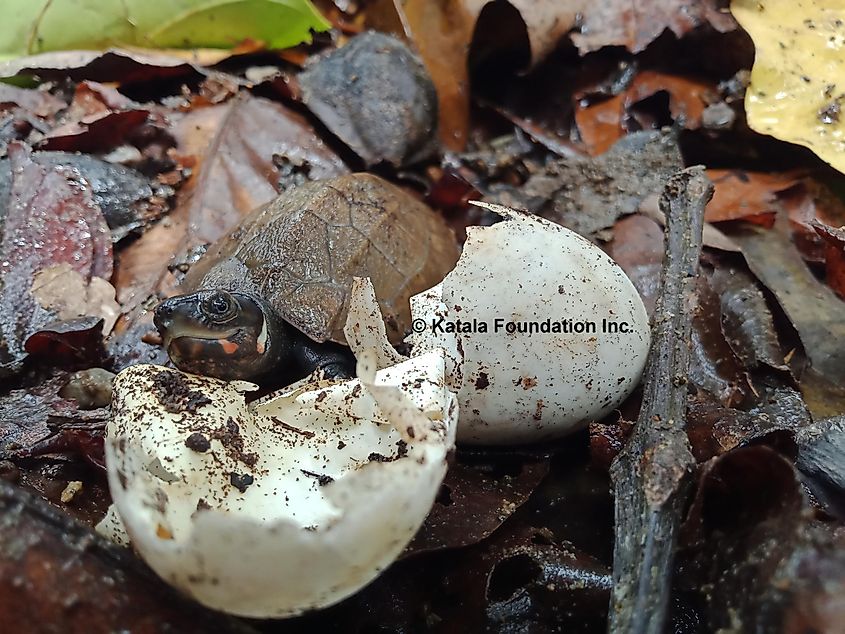
Palawan Forest Turtle hatchling.
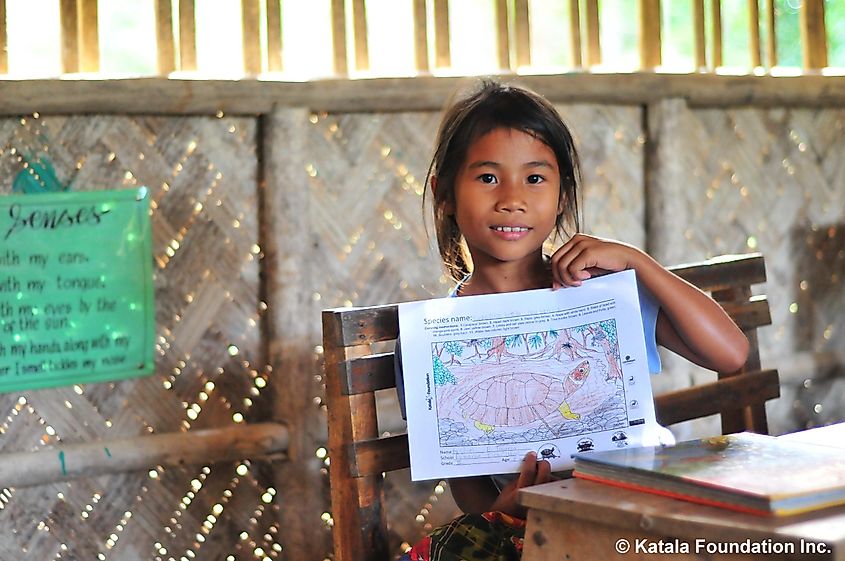
A schoolchild holding a painting of the Palawan forest turtle. To raise awareness about the Palawan Forest Turtle, KFI staff visits schools, community gatherings, sessions of the local government, and others.
"The Palawan Forest Turtle is the largest hard-shell turtle of the Philippines and the only endemic turtle of the country. It plays an important role in the environment by reducing pest species, aiding in seed dispersal, fertilizing soils, and exchanging nutrients among habitats. Its extinction would affect the ecosystem and weaken its functionality. It must survive. So, don’t exploit, don’t compete but share a place to live!" Dr. Schoppe sends out an important message to the people.











